Law Ethics Assignment: Client Rights, Lawyer Duties, and Supervision
VerifiedAdded on 2023/02/01
|5
|849
|81
Homework Assignment
AI Summary
This assignment delves into key principles of law ethics, examining the rights of lawyers to deny clients, the duty to represent clients' best interests, and the duty of supervision for inexperienced lawyers. It explores the client's right to legal representation, the duty to act in the client's best interest, and the duty to act on the client's instructions. The assignment references both Australian and US legal systems, citing relevant cases and legislation to illustrate these ethical obligations. The student explores the ethical considerations of lawyers, including their responsibilities and obligations towards their clients, providing a comprehensive overview of the fundamental principles governing legal practice. The assignment uses case law and statutory provisions to illustrate the practical application of these ethical duties.
1 out of 5
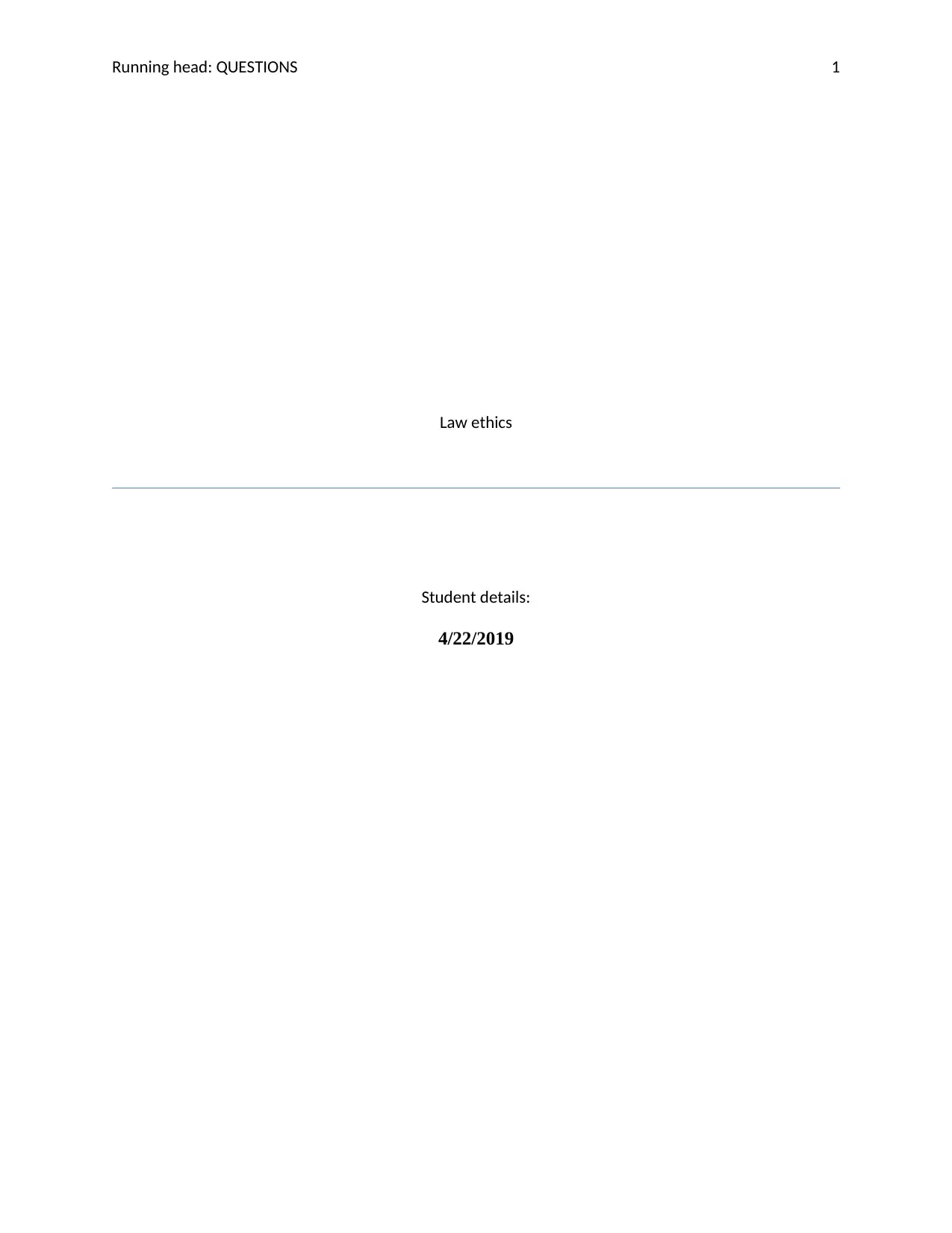
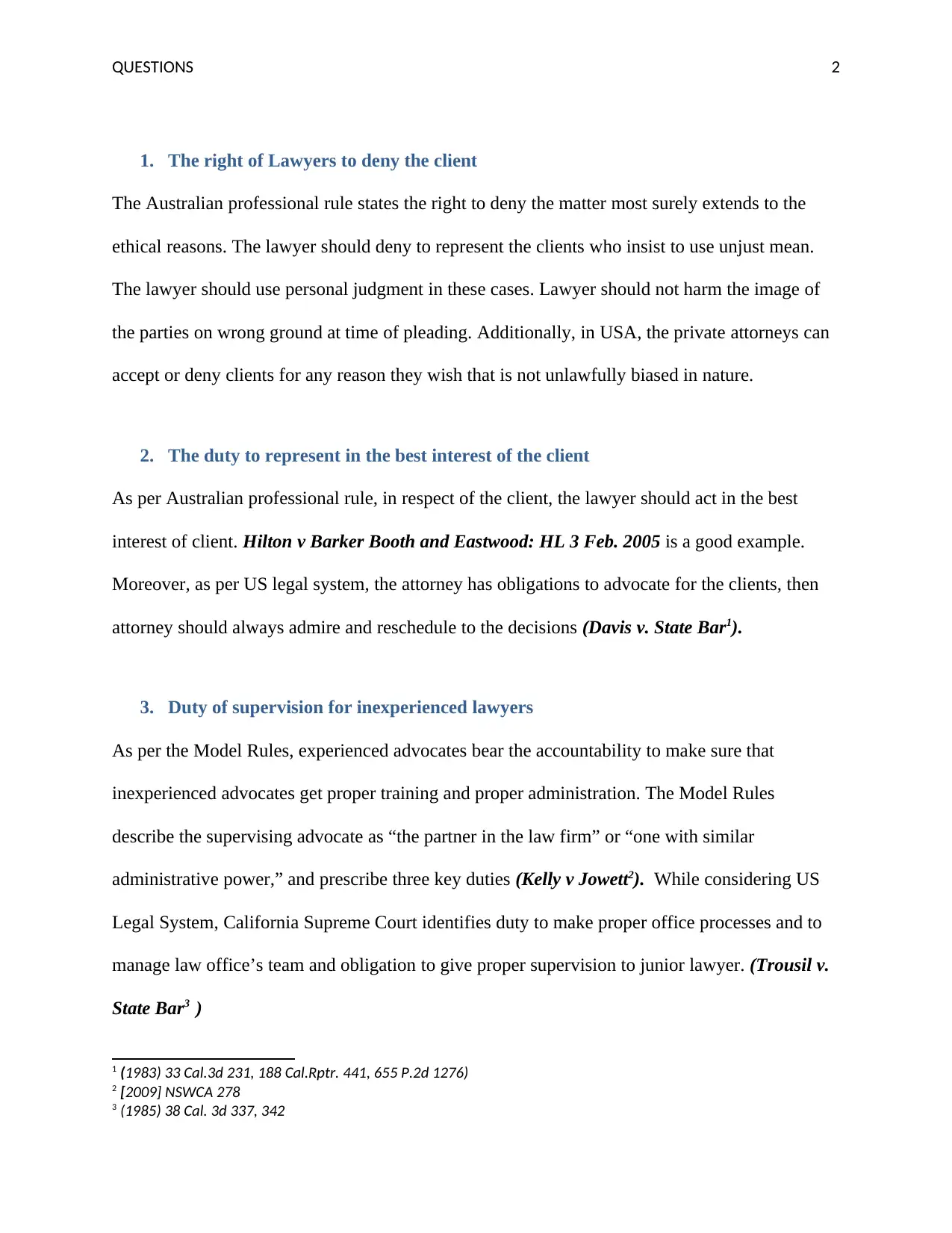
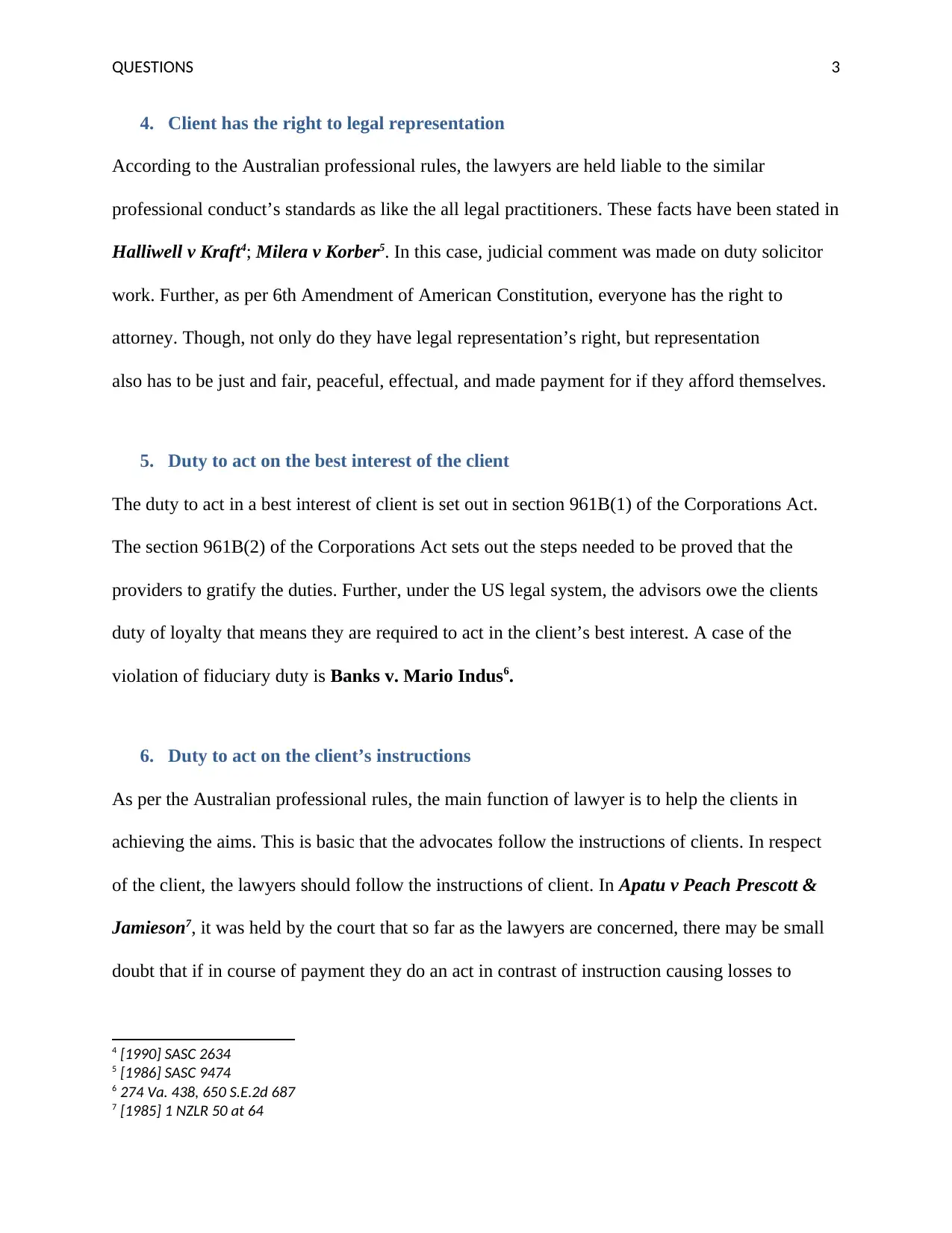

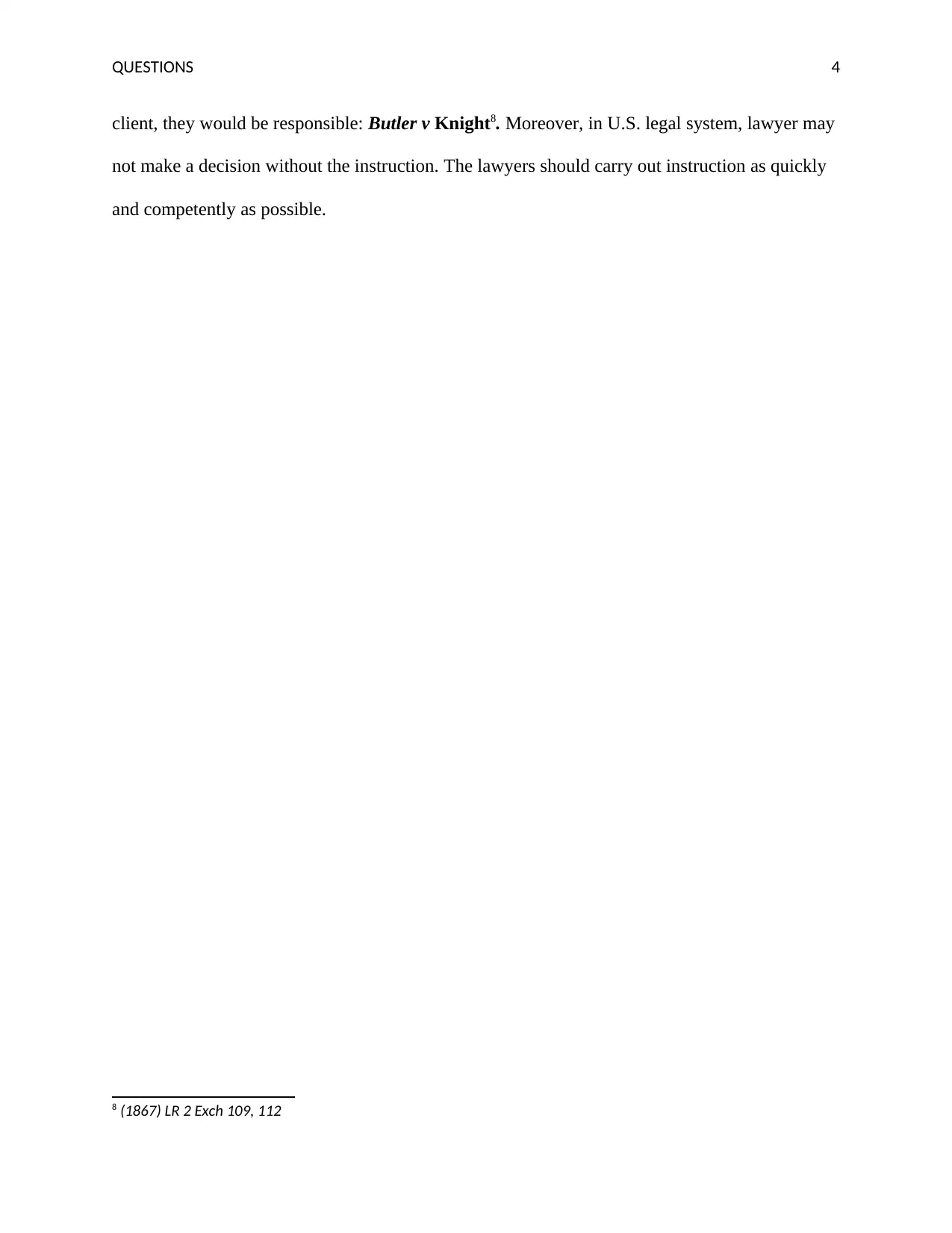
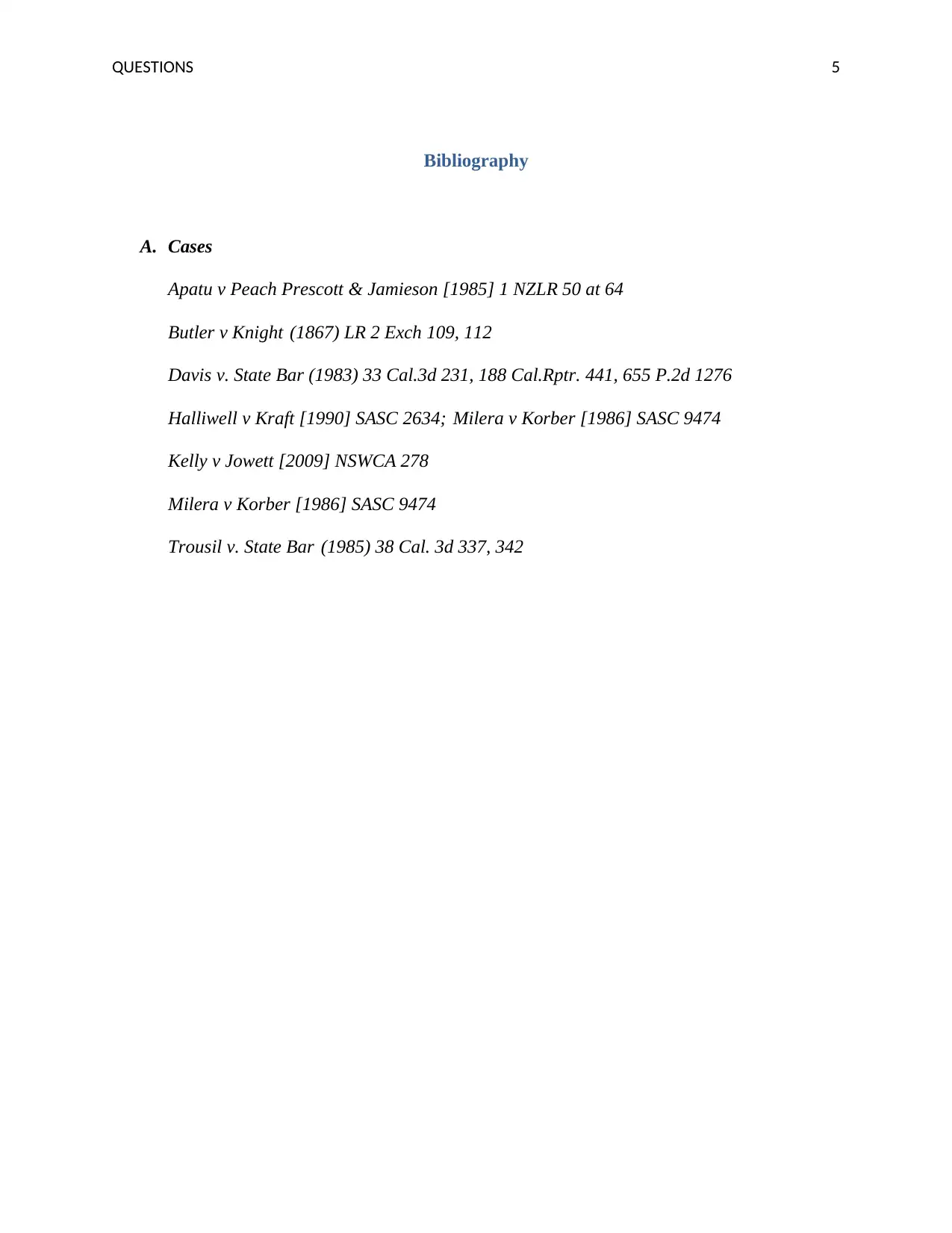






![[object Object]](/_next/static/media/star-bottom.7253800d.svg)